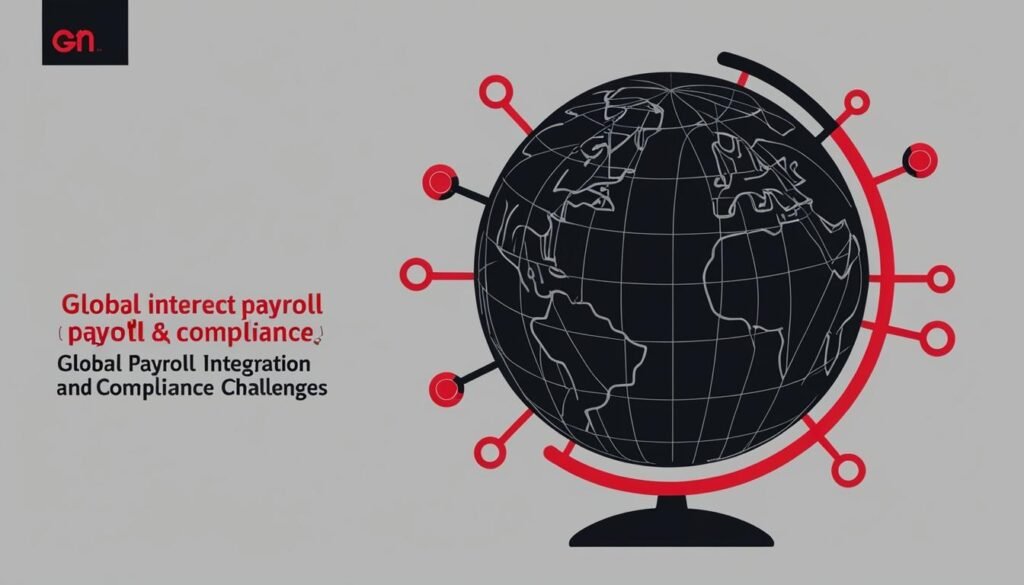As companies increasingly operate across borders, the need for unified payroll solutions that tackle local compliance and administrative challenges has never been more critical.
In an increasingly international landscape where employees work from various locations beyond traditional offices, the concept of a unified global payroll system is gaining traction. The discussion surrounding global payroll management reveals significant challenges, not the least of which include local regulatory compliance and the intricacies of multijurisdictional administration. Current forecasts and trends indicate a growing need for advanced payroll solutions that can manage these complexities effectively.
Heinrich Swanepoel, Head of Growth at PaySpace by Deel, emphasises that “the enormous amount of variable administration can make it very difficult to manage payrolls in different regions under one umbrella.” Despite the Push towards global business operations, payroll often remains a fragmented process influenced by local laws and requirements. The “Getting the World Paid” survey from 2021 underscores compliance as the core challenge businesses face in orchestrating global payroll systems.
The implications of this fragmented approach are pronounced. A study by Forrester highlighted that nearly half of payroll administrators encounter substantial hidden costs, stemming from issues such as compliance discrepancies, language barriers, and complex tax calculations. Consequently, companies frequently rely on local representatives to handle payroll tasks, which facilitates local compliance but complicates the consolidation of payroll management on an international scale.
Furthermore, Swanepoel notes that corporate ambitions to expand into new regions can often be hampered by complications related to payroll management and cost transparency. He observes, “I’ve met many companies that want to expand into new regions but then reduce their plans or abandon them due to payroll management, transparency, or cost issues.” Companies that fail to navigate payroll complexities risk incurring additional expenses and operational inefficiencies.
Against this backdrop, the need for integrated payroll platforms is becoming increasingly vital. Such systems offer the possibility of centralising payroll data, thereby minimising risks linked with compliance and administration. Swanepoel highlights that an integrated payroll system enhances business processes: “Automation removes many manual checks that take time and create opportunities for payroll fraud.” By linking payroll with finance and human resources systems, businesses can streamline operations and promote efficiency throughout the payout cycle.
However, introducing a new breed of global payroll system is essential for overcoming the limitations of traditional payroll practices. These modern platforms—often cloud-native and multi-tenant—can accommodate various global payroll needs while ensuring compliance with local regulations. Swanepoel elucidates the importance of such platforms, stating, “The best global payroll platforms have ways to overcome typical issues that in-house and traditional software cannot.” These systems automatically accommodate changes in legislation and provide seamless updates to all customers, enhancing compliance and reducing administrative overhead.
Deel has positioned itself as a forerunner in this domain, having become the first payroll platform to achieve comprehensive global payroll coverage. The recent acquisition of the payroll platform PaySpace extends Deel’s capabilities, allowing it to offer unified payroll and employee-of-record services on a Software-as-a-Service platform across multiple regions. Swanepoel asserts that “a cloud-native payroll platform radically reduces the costs and risks associated with managing global payroll,” making these integrated systems an attractive choice for companies operating across jurisdictions.
PaySpace’s payroll technology is specifically designed for scalability and compliance, tailored to meet diverse needs across industries and geographical locales. The platform provides an integrated view of payroll and HR data, facilitating strategic decision-making for organisations with international footprints. Expanding into over 40 African countries, the UK, and the Middle East, PaySpace’s imminent launch in Brazil marks a significant step in its growth trajectory.
As businesses face the complexities of global operations, the transition to integrated global payroll platforms appears crucial to overcoming payroll-related barriers and unlocking the potential of international expansion.
Source: Noah Wire Services
- https://www.dayforce.com/blog/new-research-payrolls-top-trends-and-challenges-in-2024 – Corroborates the challenges in payroll management, including compliance issues, managing multi-jurisdictional payroll, and inefficient processes.
- https://www.selectsoftwarereviews.com/blog/payroll-statistics – Supports the idea that compliance remains a significant global payroll challenge and highlights data security concerns and the need for integrated payroll systems.
- https://www.adp.com/-/media/adp/resourcehub/pdf/potential-payroll-survey-2024-us-en.pdf – Provides insights into the challenges of global payroll management, including data security, integration with other systems, and compliance issues.
- https://www.dayforce.com/blog/new-research-payrolls-top-trends-and-challenges-in-2024 – Discusses the difficulties in filling payroll positions and the pressure to control costs and manage risk, which aligns with the complexities of global payroll management.
- https://www.selectsoftwarereviews.com/blog/payroll-statistics – Mentions the impact of cyber breaches on payroll and the need for improved data security, which is a critical aspect of global payroll systems.
- https://www.adp.com/-/media/adp/resourcehub/pdf/potential-payroll-survey-2024-us-en.pdf – Highlights the importance of data quality and integrity, as well as the integration with other business-critical systems, in global payroll management.
- https://www.dayforce.com/blog/new-research-payrolls-top-trends-and-challenges-in-2024 – Emphasizes the role of AI and automation in addressing payroll challenges, which is crucial for modern global payroll platforms.
- https://www.selectsoftwarereviews.com/blog/payroll-statistics – Supports the need for advanced payroll solutions to manage complexities such as local regulatory compliance and multijurisdictional administration.
- https://www.adp.com/-/media/adp/resourcehub/pdf/potential-payroll-survey-2024-us-en.pdf – Discusses the importance of streamlining payroll processes and reducing errors, which is a key benefit of integrated global payroll platforms.
- https://www.dayforce.com/blog/new-research-payrolls-top-trends-and-challenges-in-2024 – Highlights the challenges in presenting a strong business case for investing in new payroll technologies, which is essential for transitioning to integrated global payroll systems.
- https://www.selectsoftwarereviews.com/blog/payroll-statistics – Mentions the growing demand for new ways of paying employees, such as earned wage access, which integrated global payroll platforms can facilitate.


